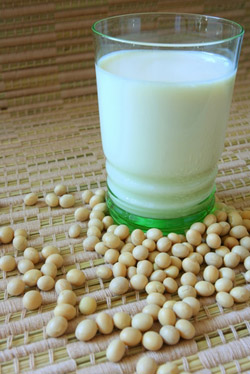Did You Know...
04/28/2008
Furci Home / Fitness Channel / Bullz-Eye Home
A column by Mike Furci that brings you research, trends and other info to help you with your fitness, health and nutritional needs.
...being overweight increases your risk of certain types of cancers? A recent study reported in “The Lancet” analyzed 221 datasets (141 articles), to determine the risk of cancer associated with increased body mass index (BMI). In men, an increase in BMI was strongly correlated with esophageal, thyroid, colon and renal cancers. There were weaker correlations between rectal cancer and malignant melanoma. These correlations were very similar to results found in North America, Europe, Australia and the Asia-Pacific region. The Lancet 2008;371:569-578
It’s becoming more and more evident that looks aren’t the only, or even the main reason someone who’s overweight should strive to lose excess fat. Evidence is now compounding that shows what we all knew, that being overweight is one of the worst things health-wise you can do to yourself. For those who say, “you should accept yourself as you are” (in other words, love yourself even though you’re fat): loving yourself for who you are is one thing, but choosing to be unhealthy especially when you have a family is just self-centered and lazy.
...the Federal Institute for Risk Assessment in Berlin, Germany, is warning parents and pediatricians that babies should not be give soy formula without strict medical supervision? Germany joins the Israeli Ministry of Health, the French Food Agency and United Kingdom health officials in warning against the dangers of infant soy formula.
 Professor Dr. Andreas Hensel stated that the main concern for infants is the high levels of estrogenic isoflavones in the formula, which act like hormones in the body. Milk allergies are not an acceptable reason for pediatricians to recommend soy formula.
Professor Dr. Andreas Hensel stated that the main concern for infants is the high levels of estrogenic isoflavones in the formula, which act like hormones in the body. Milk allergies are not an acceptable reason for pediatricians to recommend soy formula.
The Federal Institute for Risk Assessment also issued a second warning, this one to adult consumers, stating that isoflavones offer no proven health benefits and pose a health risk. Wise Traditions, 8(4):64,2007
...a wider grip does put more of an emphasis on the pecs, but not without a price? A wider grip during weight training causes horizontal abduction (elbows moving away from your sides), and causes an unnecessary increase in torque on the shoulder joint, which increases your risk of shoulder (rotator cuff and pectoralis) injury.
To help avoid injuries and to increase your performance use a closer grip. Grasp the bar with your hands just outside shoulder width. Try to keep your elbows within 45 degrees from your body.
If you feel you must use a wide grip while benching, stop the bar three to four inches above your chest. A good method for judging proper depth is to use a towel rolled up to a three to four inch thickness. Place the towel along your sternum. Bring the bar down till it just touches the towel then press it up. Keeping the bar off your chest when benching will greatly reduce your risk of injuring your shoulders.
...there is evidence that raw milk prevents the development of allergic disorders? A study published in “The Lancet” (Riedler et al, 2001), indicates that children who drank raw milk, independent of other types of exposure to farming environments, had: a 52 percent lower risk of asthma, a 57 percent lower risk of having a least one wheeze attack in a year, a 76 percent lower risk of hay fever, and a 58 percent lower risk of allergies to cows, dust mites, cat dander and pollen. Wise Traditions, 8(4):71-72,2007
...the food industry is destroying our food supply in the name of the almighty dollar? Author Michael Pollan, argues that most people don’t consume food but “edible food-like substances.”
"Yeah, it’s a literary scientific experience now going shopping in the supermarket, because basically the food has gotten more complex. It’s—for the food industry—see, to understand the economics of the food industry, you can’t really make money selling things like, oh, oatmeal, you know, plain rolled oats. And if you go to the store, you can buy a pound of oats, organic oats, for 79 cents. There’s no money in that, because it doesn’t have any brand identification. It’s a commodity, and the prices of commodity are constantly falling over time.
"So you make money by processing it, adding value to it. So you take those oats, and you turn them into Cheerios, and then you can charge four bucks for that 79 cents—and actually even less than that, a few pennies of oats. And then after a few years, Cheerios become a commodity. You know, everyone’s ripping off your little circles. And so, you have to move to the next thing, which are like cereal bars. And now there’s cereal straws, you know, that your kids are supposed to suck milk through, and then they eat the straw. It’s made out of the cereal material. It’s extruded.
"So, you see, every level of further complication gives you some intellectual property, a product no one else has, and the ability to charge a whole lot more for these very cheap raw ingredients. And as you make the food more complicated, you need all these chemicals to make it last, to make it taste good, to make—and because, you know, food really isn’t designed to last a year on the shelf in a supermarket. And so, it takes a lot of chemistry to make that happen."
Questions or comments? Send them to mike@bullz-eye.com.
You can follow us on Twitter and Facebook for content updates. Also, sign up for our email list for weekly updates and check us out on Google+ as well.







